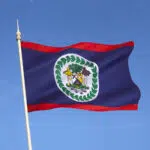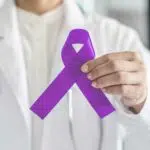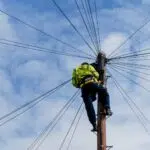National Opioid Awareness Day, observed on September 21, is marked to create awareness about the effects of opioid overdose and reduce the stigma associated with it. Its purpose is to raise awareness of overdoses, reduce the stigma of drug-related deaths, and acknowledge the grief felt by families and friends. The holiday is the American version of International Overdose Awareness Day, which was initiated in 2001 in Australia by S. J. Finn. The movement is necessitated by the problem of opioid use in the U.S.
History of National Opioid Awareness Day
Opioids are a diverse class of strong, addictive, and considerably inexpensive drugs, which include opiates and fentanyl. Conventionally, opioids have been prescribed as pain medication, as they are capable of treating acute pain but are less effective for treating chronic pain. Clinical guidelines state that opioids should be used only as a last resort for chronic pain in the absence of safer alternatives, as the risks of opioids often outweigh the benefits. The opioid epidemic in the U.S. is due to the ongoing overuse of opioid medications, both from medical prescriptions and illegal sources. According to the Centers for Disease Control and Prevention, this extensive overuse of opioid substances began in the U.S. in the late 1990s. This was a time when opioid prescriptions for pain management escalated and resulted in a rise in the overall use of opioids in the following years. Most Americans who use prescription opioids for pain management refuse to believe that they are abusing them.
According to statistics, nearly 841,000 people died from drug overdoses between 1999 and 2020, and of this number, 500,000 were as a result of prescription and illicit opioids. In the year 2017 alone, up to 70,237 drug overdose deaths were recorded, 47,600 of which involved an opioid. According to a December 2017 report, an estimated 130 people in the U.S. die every day from an opioid-related drug overdose.
National Opioid Awareness Day timeline
The United States Drug Enforcement Administration is established to tackle issues relating to the use of illicit drugs and other controlled substances.
The first wave of the opioid epidemic hits the U.S. in the mid-to-late 1990s.
The second wave of the opioid epidemic in the U.S. begins.
The Rx Awareness, a campaign against opioid use disorder, is launched.
National Opioid Awareness Day FAQs
Which country has the most opioids?
Afghanistan contributes 93% to the world’s opioid market.
Are opioids harmful?
Opioids are harmful if and when used indiscriminately and without proper prescription. However, when administered and supervised by accredited medical professionals, they are safe to use.
What are some effects of opioid use disorder?
There are a number of adverse effects of the opioid use disorder, ranging from depression to nerve damage, possible dementia, and even death.
How to Observe National Opioid Awareness Day
Volunteer at a rehabilitation center
In celebrating National Opioid Awareness Day, you can volunteer at a rehabilitation center. Ask what you can do to help people suffering from opioid use disorder.
Petition for better drug management policies
You can start a petition in your town or online for the authorities to institute even better policies for drug management. Let’s pressure relevant authorities to take action.
Stop the stigma
We all have our part to play and putting an end to the stigma surrounding opioid use can start with you. So, go out there and spread awareness!
5 Facts You Should Know About Opiods
Opioids are available in prescription
Opioids, though largely considered harmful, are in circulation and can be available through prescription.
Even prescription opioids can be harmful
Even when they come with a prescription, opioids are still potentially dangerous and harmful.
Thousands have died from opioid overdose
The U.S. has recorded more than 800,000 deaths since the first wave of the opioid epidemic.
Opioid overdose effects include severe depression
One of the most common effects of an overdose of opioids is severe depression.
Opioids can be very addictive
Opioids bind to receptors in the nervous system and the brain, and as such are capable of leading to regular dependency and eventual addiction.
Why National Opioid Awareness Day is Important
This day creates awareness against stigma
National Opioid Awareness Day helps to create awareness against the stigma that is generally attached to opioid abuse. Stigma greatly hampers efforts to eradicate abuse.
It helps prevent further cases
The efforts of movements such as Rx Awareness help to further prevent future occurrences of opioid abuse. If we have more people leading more campaigns, we would have better chances of winning the fight.
It helps in managing opioid use disorder
National Opioid Awareness day is an effort in the campaign toward managing opioid use disorder. Poor management is what led to the opioid crisis in the first place.
National Opioid Awareness Day dates
| Year | Date | Day |
|---|---|---|
| 2025 | September 21 | Sunday |
| 2026 | September 21 | Monday |
| 2027 | September 21 | Tuesday |
| 2028 | September 21 | Thursday |
| 2029 | September 21 | Friday |
























